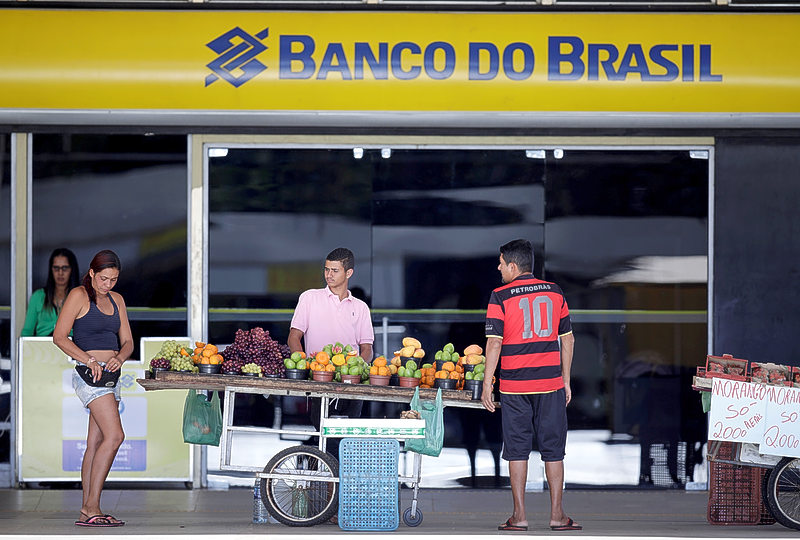SAO PAULO/BRASILIA--Brazilian state-controlled bank Banco do Brasil SA is planning reforms to better compete with private rivals, after President Jair Bolsonaro quashed an attempt by management to fully privatize the lender, according to four people familiar with the matter.
The plan includes changing employment rules to make it easier for the bank to hire and fire staff and remove some pay restrictions, said these people, who declined to be identified because the plan is not public yet.
They added the plan also calls for the bank to maintain its dividend payout ratio even as it expects asset sale proceeds to add to profits in the coming months, and form partnerships with financial technology and other startups.
The plan was approved by the bank's board late last year, two of the sources said. Portuguese-language paper Valor Economico reported on Thursday the bank's plan to form joint ventures with fintech startups, but the other details have not been previously reported.
The bank will still need to seek approvals from the government to move ahead. Some elements of the plan, such as weaker job protections, could prove to be politically tricky and face resistance from within the bank's nearly 94,000 workforce.
The sources said the conversations with the Economy Ministry on job rules started last year and any changes are likely to apply to other listed state-controlled companies as well. However, the outcome of those discussions remains unclear. Banco do Brasil declined to comment on the matter.
The Economy Ministry denied that it was considering changing employment rules. But two ministry sources said discussions were ongoing. One of these sources described the talks as preliminary.
The bank's latest attempt at reforms underscores how the realities of Brazilian politics are slowing Bolsonaro's agenda. The right-wing populist, who became president in January 2019, raised investor expectations that he would reduce the role of the state in Latin America's largest economy. But he has fallen short on delivering on some of those promises.
Soon after taking over, his administration installed new management at Banco do Brasil, the country's second-largest bank with a market cap of $35 billion, and the bank initiated a series of divestitures. Helio Magalhaes, who previously headed Citigroup Inc and American Express Co in Brazil, was named chairman. Rubem Novaes, a University of Chicago-trained economist who had been an academic most of his career, was named chief executive.
The management argued in public and private that the government needed to give up its 50% stake in the lender for it to better compete against rivals such as Itau Unibanco Holding SA, Banco Bradesco SA and Banco Santander Brasil SA. They argued that the bank could rapidly fall behind such rivals if it was not quick to offer clients new products, upgrade technology and retain and hire talent.
Bolsonaro, however, rejected the idea. The bank believed that was in part because he would face opposition from members of congress whose constituents rely heavily on Banco do Brasil, one of the sources said. Banco do Brasil is often the only bank in rural and other underbanked regions.
Bolsonaro did not immediately comment on the matter. In December, the Brazilian president told journalists that discussions on the bank's privatization was a closed matter.
The latest proposal is Plan B, two of the sources said. One of the key pillars of the plan is to change how the bank hires and fires staff, and gain more flexibility in how much it is able to pay employees, the four sources said.
Depending on how strategic the position is, the bank wants to be able to pay higher salaries to attract and retain talent without having to ask for permission from the Economy Ministry, the sources said.
The pay differences among senior managers could be substantial, a review of publicly available pay data shows. For example, top managers at Santander Brasil, on average, were paid more than four times what Banco do Brasil pays for similar roles. Lower level jobs, however, are paid more at Banco do Brasil.
While arguing for privatization, Novaes has said the bank lost 50 top executives to competitors in 2019 in part because they could not afford to pay those people as much as the private sector paid. If the government approves the change, it would also allow Banco do Brasil to reduce headcount faster through initiatives such as voluntary severance programmes. The workforce reforms, however, are likely to face resistance from public servants who are used to generous benefits and job protections.







